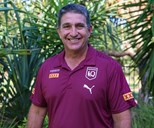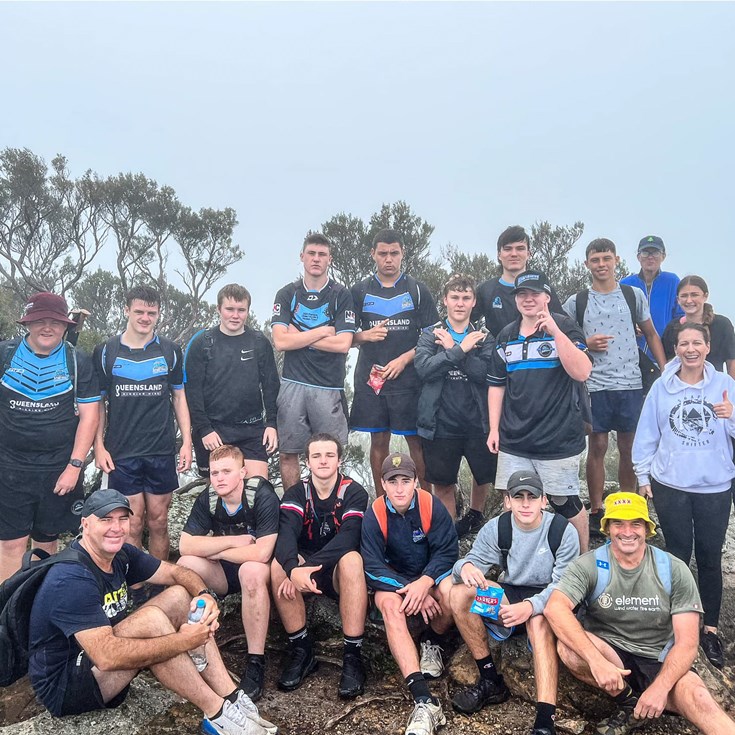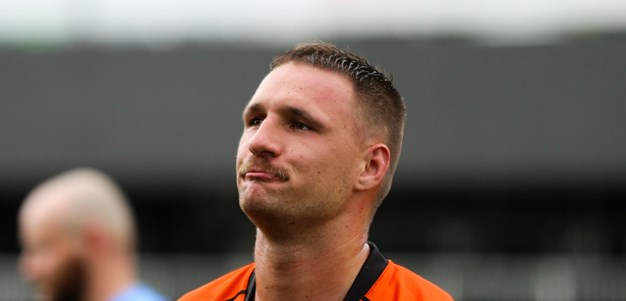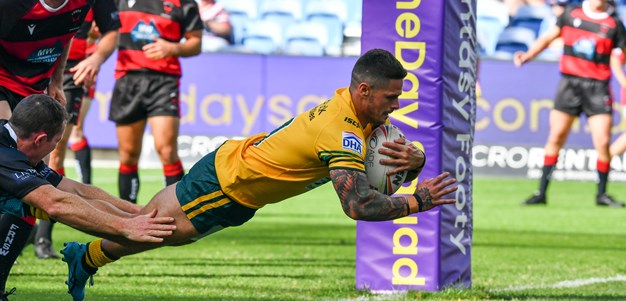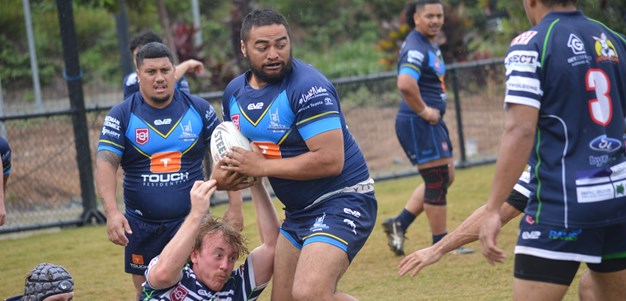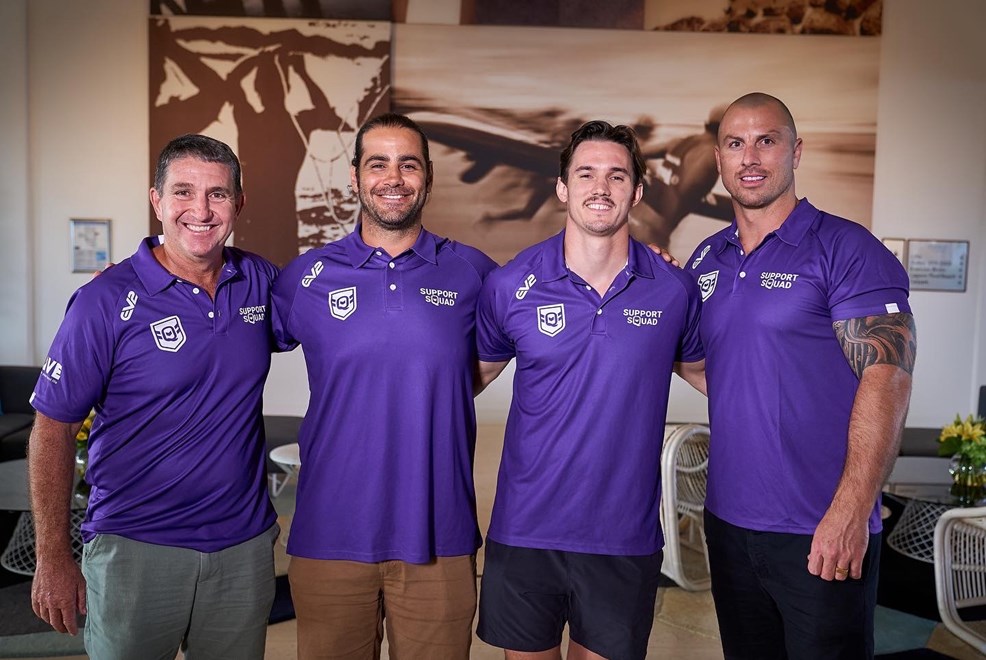

When people are looking to improve their general wellbeing and mental health, the first thing they will often ask me is: "Where do I start?"
At the beginning of April, myself and the Queensland Rugby League’s wellbeing team were privileged enough to attend the NRL and Rugby League Players Association’s wellbeing conference in Kingscliff, which gave me the chance to reflect on how I answer this question.
It’s an annual conference which focuses on sharing information and ideas and helping each other out.
We had our team from the QRL, representatives from all the Hostplus Cup clubs, and employees from the 16 NRL clubs plus those from the governing bodies.
It’s always an eye-opening event and this year was no different.
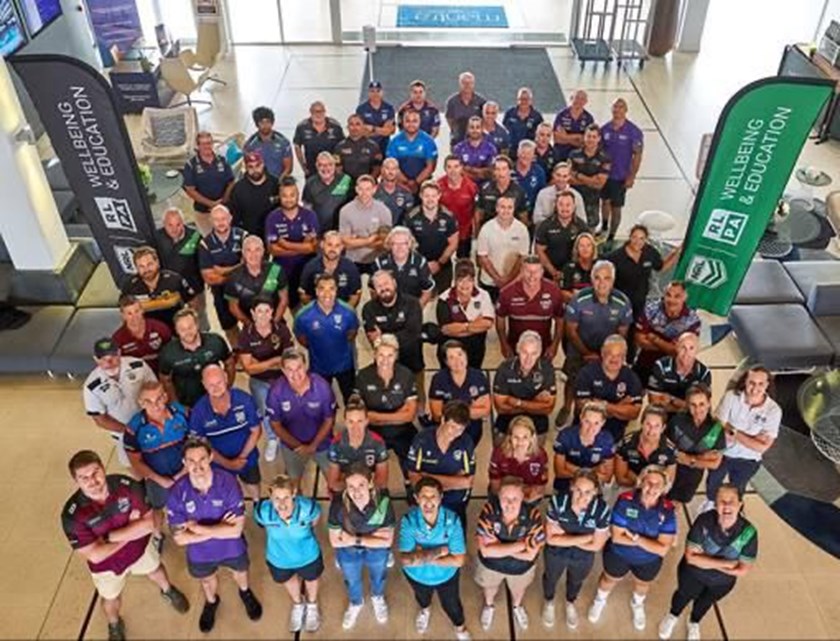
We had Andrew Gardner come in to talk about concussion, the long-lasting effects, general brain health, and how to mitigate problems players might have post-playing days.
We had sessions on financial literacy and cryptocurrency, meditation and breathwork, future proofing our careers, legal and ethical issues, athletes becoming parents, and more.
It covers a variety of topics so we know how to relate to our athletes, work with them, and know what issues we ourselves may face.
But one of the most impactful sessions – one of those ones that really got the gears turning – was from Steve Johnson from the Wellbeing Science Institute.
He came in and talked about this new direction he’s looking at taking his group and a program they are putting together called Complete State.
A lot of what we do in wellbeing and education is we offer information, education and assistance, but the bulk of that work is done reactively.
And that is the point of Steve’s new approach – why are we waiting?
Instead of waiting for someone’s cup to empty, let’s work to keep it topped up.
It’s about teaching people to understand and recognise when things are starting to turn and give them the tools they need to self-help or the right direction to go for help.
We need to be more proactive in educating people, especially younger people.
We have to teach kids what it’s like to feel good, what that really means.
That way they have their benchmark. When we’re asking them to be better they have a goal, direction and understanding of where they want to get to.
If you’ve been in a rough place for a while, that state of mind and those emotions become your normal so we need to teach them what it means to feel good and for that to become the normal.
It’s a really cool direction and something I believe we can all jump on board with.
Instead of living lives where we’re rebounding and working to be better, why not have a life where we’re flourishing all the time?
When this program comes to fruition, it will become an education accreditation piece for wellbeing employees across the game.
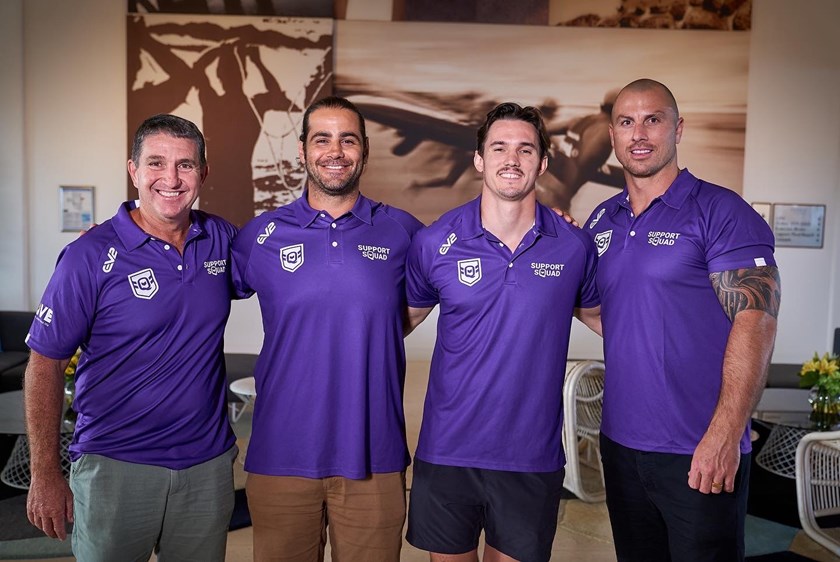
I think it teaches a level of emotional intelligence that we at the QRL can definitely use as we work with clubs, players and more.
We already touch on some of these topics in our Positive Behaviours program, where we ask kids to identify a positive behaviour over a negative one.
It’s no different to our own daily habits and what we’ve taken from this conference.
Everyone can benefit from knowing when they don’t feel well and then identifying why.
That understanding of self is what we’re missing sometimes. It’s something we don’t take advantage of enough - to stop and self-analyse.
One of the biggest problems with people with mental health issues is that they’re losing control.
If we can teach them early, this is how you take control and how to get on top of this, give them the right tools, then we’re sending them out ready out to flourish.
Which brings us back to that initial question: Where do I start?
I have two starting points.
The first is to use the tools you already have to benefit you.
Everyone is using social media and smartphones these days. That is the perfect tool to find information.
Don’t just use it to watch cat videos. Go and find information around breath work, for example.
Read about it, learn about it. Find something that will be one small change that will easily fit into your life and that you will do.
That’s a really good place to start.
Secondly, I am the world champion at saying, “how are you going?” to someone. You hear that response of “good” and move on.
But instead of asking that, we should be asking, “how are you feeling?”.
It’s something we need to teach kids and all young people in our lives as well.
Get really good at asking them how they are feeling, getting an actual answer, listening to the response and identifying emotions.
It’s something we all need to be better at doing.
